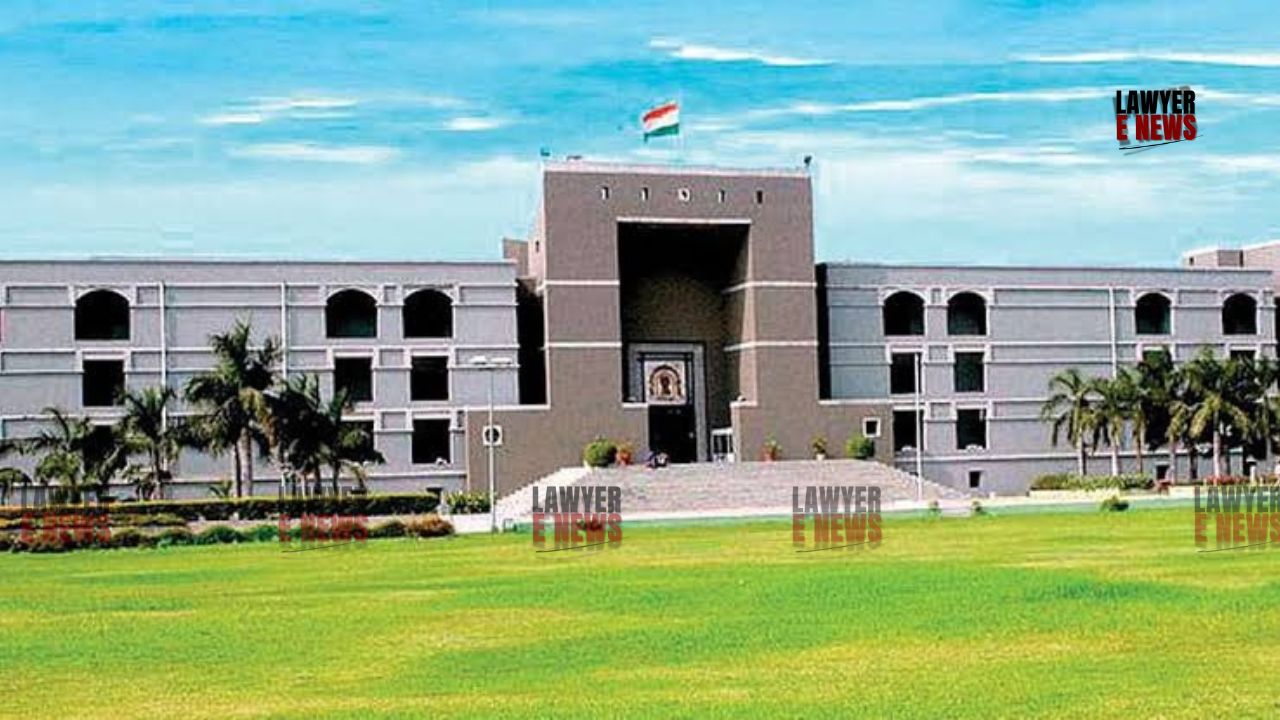-
by Admin
15 February 2026 5:35 AM



The Gujarat High Court, in a significant ruling, quashed an FIR against Dr. Rajeshkumar Somabhai Katara and another accused in a case involving the alleged abetment to suicide of Dr. Katara's husband. The court held that the prosecution failed to establish the essential ingredients of abetment under Section 306 of the Indian Penal Code (IPC), notably the lack of mens rea or intention to instigate the suicide.
The case arose from the suicide of Dr. Katara's husband, who was allegedly distressed by his wife's extramarital relationship with the co-accused. The complainant, the deceased's mother, lodged an FIR accusing Dr. Katara and her alleged paramour of abetting the suicide. The prosecution argued that the husband's discovery of the affair led him into depression, ultimately driving him to take his own life.
Justice Divyesh A. Joshi noted the significant delay in registering the FIR—19 days after the alleged suicide—which was unexplained by the complainant. The court also considered that the FIR and the evidence presented, including call recordings and WhatsApp chats, failed to demonstrate any direct act of instigation or intentional assistance from the accused that would have led to the suicide.
Citing the Supreme Court’s ruling in Geo Verghese v. State of Rajasthan, the court reiterated that for a conviction under Section 306 IPC, there must be clear evidence of mens rea and a direct, intentional act by the accused to instigate the suicide. The judgment emphasized, "Abetment involves a mental process of instigating a person or intentionally aiding a person in doing a thing. Without a positive act on the part of the accused to instigate or aid in committing suicide, conviction cannot be sustained."
Further referencing K.V. Prakash Babu v. State of Karnataka, the court observed that while extramarital affairs might constitute grounds for divorce, they do not, by themselves, amount to abetment of suicide unless accompanied by a clear intention to provoke such an act. The court concluded that no such intention was evident in this case.
Justice Joshi remarked, "The very element of abetment is missing from the allegations leveled in the FIR. In absence of the element of abetment from the allegations, the offense under Section 306 IPC would not be attracted."
The Gujarat High Court's decision to quash the FIR underscores the judiciary's careful approach in cases of alleged abetment to suicide, particularly where the prosecution's evidence fails to establish the requisite intent to instigate. This ruling reaffirms the legal principle that mens rea and direct instigation are crucial components for sustaining charges under Section 306 IPC. The judgment also sets a significant precedent for similar cases, emphasizing the need for robust and timely evidence to support such serious allegations.
Date of Decision: August 28, 2024
Dr. Rajeshkumar Somabhai Katara v. State of Gujarat
